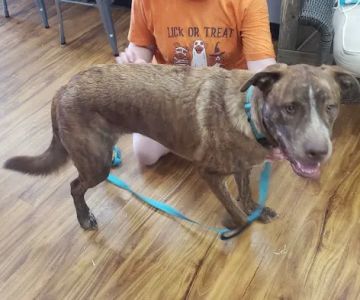How to Solve Pet Gastrointestinal Problems Effectively
As a pet owner, one of the most concerning issues you may face is gastrointestinal (GI) problems in your pet. Whether it’s an upset stomach, diarrhea, vomiting, or more severe issues like bloating or constipation, digestive problems can leave our pets feeling miserable and our minds full of worry. I’ve been there with my own pets, and it’s not an easy situation to navigate. Fortunately, there are effective solutions for pet gastrointestinal problems that can help alleviate discomfort and restore their health. In this article, I’ll share some of the most effective approaches I’ve used—and what I’ve learned along the way—when it comes to managing GI problems in pets.
1. Recognizing Gastrointestinal Problems in Pets
Before we dive into the solutions, it’s important to understand what gastrointestinal problems in pets look like. Pets, especially dogs and cats, are prone to digestive issues, and many symptoms can be easily mistaken for something else. I’ve experienced this with my own pets more times than I care to admit. Here's what to look out for:
- Vomiting: This can happen occasionally, but if it becomes frequent, it might indicate an underlying issue.
- Diarrhea: Loose stools can be a sign of many things, from mild stomach upset to something more serious like parasites.
- Loss of Appetite: If your pet refuses food or water, it's often a red flag for gastrointestinal distress.
- Bloating or Distended Abdomen: This can be a sign of serious conditions, like bloat (gastric dilatation-volvulus) in dogs, and needs immediate attention.
- Constipation: Difficulty passing stool can be uncomfortable for your pet and might require veterinary intervention.
Once you identify these signs in your pet, it’s crucial to address the issue right away. In my experience, prompt treatment can make all the difference in ensuring a quick recovery.
2. Common Causes of Gastrointestinal Problems in Pets
Gastrointestinal issues in pets can arise from many different causes. Identifying the root cause is essential for choosing the right treatment. Some of the most common causes I’ve encountered (and that many veterinarians see regularly) include:
- Dietary indiscretion: Pets are known for eating things they shouldn’t—like garbage, spoiled food, or even plants—which can lead to digestive upset.
- Food allergies or sensitivities: Some pets develop sensitivities or allergies to certain ingredients in their food, like grains, poultry, or beef.
- Infections: Bacterial, viral, or parasitic infections can wreak havoc on your pet's digestive system, causing diarrhea or vomiting.
- Stress: Just like humans, pets can suffer from stress-induced stomach issues. This is especially true for pets that have a sensitive stomach or anxiety.
- Chronic conditions: Certain health conditions, such as inflammatory bowel disease (IBD), pancreatitis, or even kidney disease, can lead to recurring GI issues in pets.
Understanding the underlying cause of your pet’s GI issue is key to finding an effective solution. I’ve learned through trial and error that treating symptoms alone isn’t always enough—addressing the cause ensures long-term relief for your pet.
3. Effective Solutions for Treating Pet Gastrointestinal Problems
Once the cause is identified, there are various treatment options available, and some may be more effective than others depending on your pet’s condition. Here are a few effective solutions that I’ve seen work wonders:
3.1. Adjusting the Diet
Diet plays a crucial role in your pet’s digestive health. One of the first things I do when my pet experiences gastrointestinal issues is change their diet. This is often the most straightforward solution. For mild upset stomachs or diarrhea, switching to a bland diet—like boiled chicken and rice—can help settle the stomach and reduce inflammation. A veterinarian may also recommend a prescription diet, such as Hills’ i/d or Royal Canin Gastrointestinal formula, which are designed to be easy on the digestive tract.
3.2. Probiotics for Pets
Probiotics are beneficial bacteria that help restore the balance of gut flora. I’ve used probiotics in my pets with great success. These can be given as supplements or in the form of specially designed probiotic foods. They are especially useful when your pet is recovering from an infection or taking antibiotics, as they help maintain healthy digestion and prevent further issues.
3.3. Prescription Medications
Sometimes, dietary changes and probiotics aren’t enough, and medications may be needed to treat more severe gastrointestinal problems. Medications like anti-nausea drugs (e.g., Cerenia), antidiarrheals (e.g., Imodium), or even antibiotics can help resolve the underlying issue. In cases of chronic conditions like inflammatory bowel disease (IBD), immunosuppressive drugs and steroids may be prescribed. I always work closely with my vet to ensure the right treatment for my pet’s condition.
3.4. Hydration Therapy
If your pet is vomiting or suffering from diarrhea, hydration becomes a top priority. Dehydration can quickly set in, so it’s important to ensure your pet stays hydrated. Oral rehydration solutions are available, or in more severe cases, your vet might recommend subcutaneous or intravenous fluids to restore hydration. In my experience, rehydration therapy can make a significant difference in how quickly my pets recover.
4. Preventing Future Gastrointestinal Issues
While it’s important to have a plan for treating gastrointestinal problems when they arise, preventing them from happening in the first place is even better. Here are a few strategies that have worked well for me in preventing future GI issues:
- Consistent feeding schedule: Feeding your pet at regular times each day helps regulate their digestive system.
- Avoid table scraps: As tempting as it is, feeding your pet human food can upset their stomach. Stick to high-quality pet food.
- Regular vet check-ups: Routine veterinary visits ensure that any underlying health conditions are identified early before they develop into bigger problems.
- Stress management: If your pet is prone to stress, creating a calm, safe environment and avoiding stressful situations can help prevent GI flare-ups.
By taking these proactive measures, you can significantly reduce the chances of your pet experiencing gastrointestinal issues in the future. Of course, if any problems persist, it’s always best to consult your veterinarian to rule out any serious conditions.
5. When to See a Veterinarian
While most gastrointestinal issues can be managed at home, there are times when a visit to the vet is necessary. I’ve learned over the years that if my pet’s symptoms last more than 48 hours, or if they experience severe symptoms like excessive vomiting, blood in stools, or lethargy, it’s time to get professional help. The sooner you seek veterinary care, the quicker your pet can get the right treatment and feel better.
Remember, your veterinarian is your best resource for determining the cause and finding the best solution to your pet’s gastrointestinal issues. They can perform diagnostic tests, recommend treatments, and provide ongoing care to keep your pet healthy and happy.











